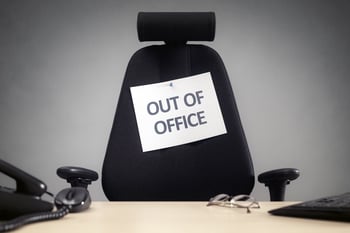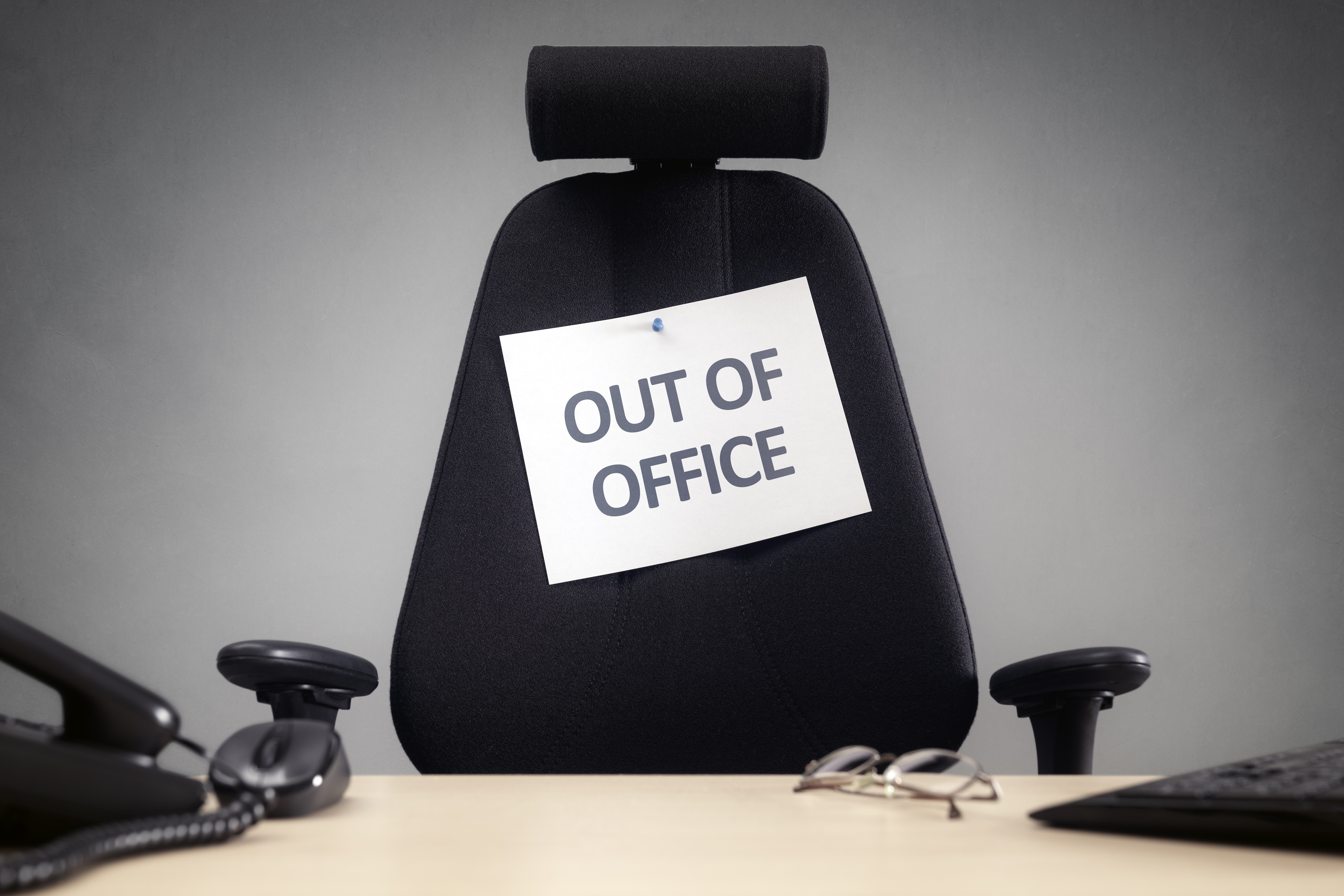Why Out-of-office Replies Can Be a Sales and Marketing Goldmine
To many, out-of-office replies are annoying, sometimes because it’s another email to clutter up your inbox and sometimes because you really needed to contact that person and they’re unavailable. But auto-reply emails hold meaningful information that can aid your sales and marketing process – and build personal rapport.
Here are 5 things you can learn from out-of-office replies:
The Nature & Length of Their Absence
Most people skim an out-of-office reply; some delete it without reading it – especially if you’re a marketer sending out emails to a list or a salesperson following up with multiple contacts. However, it’s important to READ the out-of-office reply and then not contact that person again until they return to the office.
 First, it’s common courtesy. Being away from work can create anxiety because no matter how long you’re gone, you know you’re looking at hours of catching up when you return. And when you do return, don’t you delete unimportant messages and respond important ones? Well, if you sent multiple emails to someone who was away from the office, it’s a red flag you didn’t bother to read their out-of-office replay – you half-assed continued to market and sell to a contact that made it clear they weren’t available. Set a reminder and don’t contact that person until 2-3 business days after their return.
First, it’s common courtesy. Being away from work can create anxiety because no matter how long you’re gone, you know you’re looking at hours of catching up when you return. And when you do return, don’t you delete unimportant messages and respond important ones? Well, if you sent multiple emails to someone who was away from the office, it’s a red flag you didn’t bother to read their out-of-office replay – you half-assed continued to market and sell to a contact that made it clear they weren’t available. Set a reminder and don’t contact that person until 2-3 business days after their return.
Handling Sensitive Instances with Care
I once used an out-of-office reply that mentioned a death in my immediate family. I clarified that I was 100% unavailable by phone or email for X days – but wouldn’t you know it, a salesperson emailed me after they read my out-of-office message (that’s two emails) and called me twice. When they called again after I got back, they were upset I had “ignored” their prior communications. That person never received my business, but I hope I gave them a valuable lesson going forward.
If a contact is handling a sensitive issue – a death in the family, an illness, a crisis – leave the contact alone until 3-4 days after they return.
A Contact Has Left the Company or Abandoned Their Email Address
Promptly remove this contact from your database. Yes, emails might be forwarded to the new contact, but you risk the email account being abandoned.
From an email deliverability perspective, you’re more likely to be penalized for sending emails to an invalid email address. The average email database depreciates by 25% per year – partly due to job changes and companies closing – so when the opportunity arises to self-clean your database, take it.
A New Contact Was Hired
When a contact leaves a company, the company may weed out their email by creating an auto-reply that indicates the new contact. Send a personal email to the new contact, tell them about your relationship with the previous contact, and start forging a relationship with the new contact. Just updating your records isn’t enough – the average office employee receives 121 emails per day (which I think a conservative estimate) – so if you don’t introduce yourself to the new content, your emails may be included in a mass deletion.
It’s important this first email is a light touch – don’t go for a sale. It’s the first step of earning trust and building a relationship, so don’t be pushy or exaggerate your relationship with the previous contact.
Use Information to Build a Relationship
I’d like to brace this point with caution, but authentic compassion can build rapport.
Humans like to share; emotional experiences elicit that response, and so vacations, illnesses, death, etc. are often included in out-of-office replies. Note the personal reason the contact is away, and when you reach out after they return, mention their experience in un-intrusively and compassionately. It might be seen as insensitive to try to discuss a death, but sending flowers on behalf of your company is a kind gesture – but only do so to show authentic compassion, not as a tactic to earn their business.
However, if they mentioned a visit to Bora Bora and you’ve also visited – or want to visit – it’s a great icebreaker. But again, be authentic.
The adage “treat others as you would like to be treated” applies here. So as you read about the sales and marketing opportunities you can get from out-of-office replies, consider how much information you share and the boundaries you expect while you’re away.
Do you have additional insight to share or more tips? Please leave your comments below – I’d love to connect!




Submit Your Comment